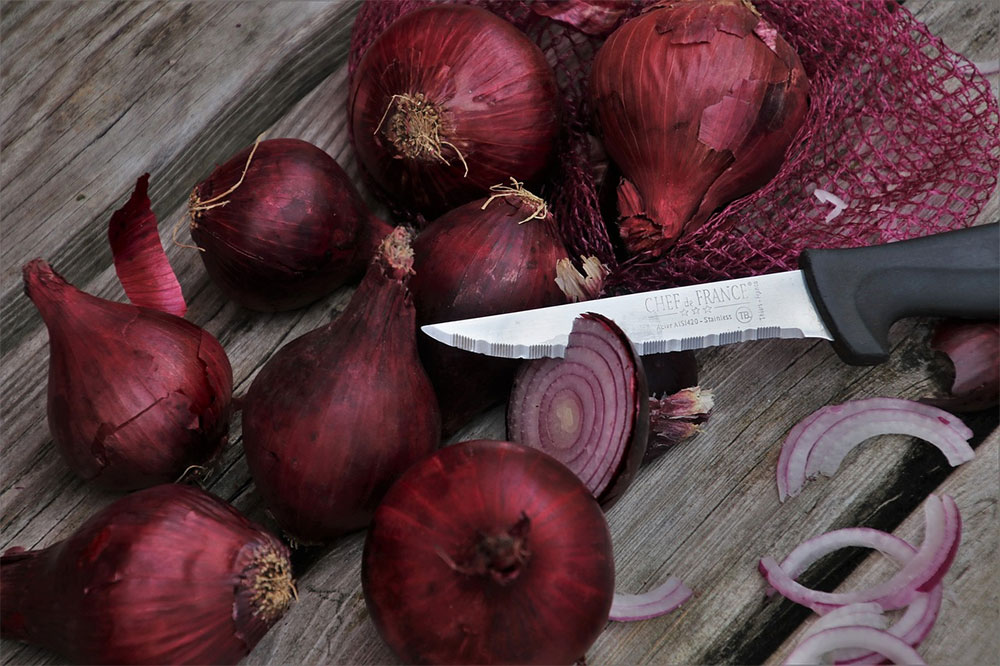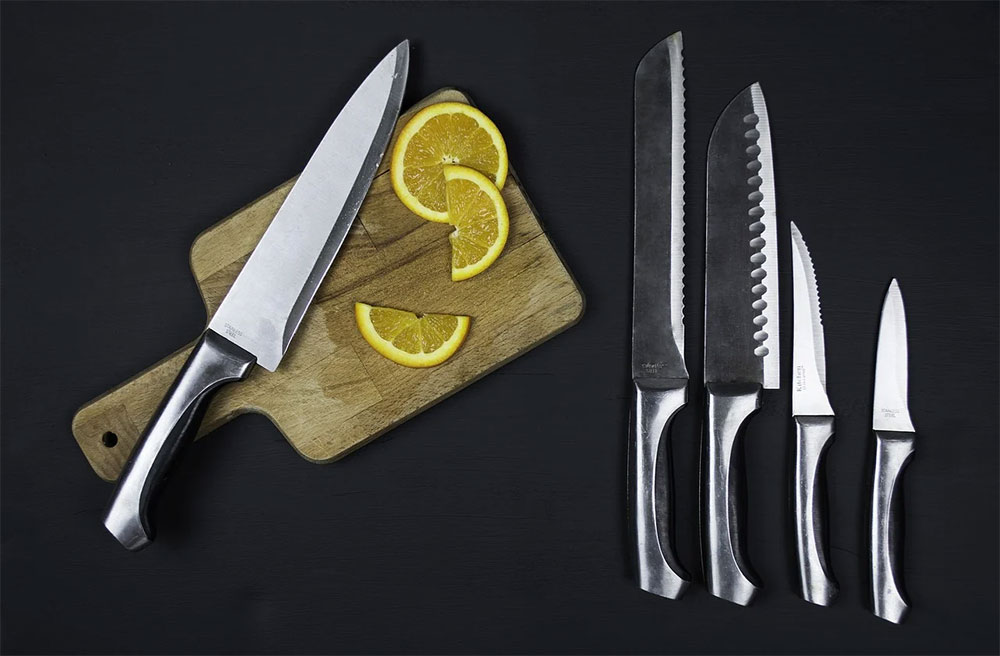Advertisement
There’s nothing better for a chef than a great set of kitchen knives. Whether you’re wannabe-chef cooking up Instagram-worthy meals at home or a professional working in a busy kitchen, it’s important to know all about knife care. We would not want to ruin our expensive and beautiful kitchen knives.
The problem is, knives can wear down and become damaged very quickly. They need to be looked after properly. Damaged, blunt knives are dangerous. Struggling to cut through something, pushing hard, and dragging the knife back and forth means you may end up slipping and hurting yourself. Plus, it’s just annoying having blunt knives!
Below are a few smart ways to help keep your kitchen knives in good condition.
Storage Ideas
Often, when we are finished using our knives we throw them straight in a drawer with other cutlery, pizza cutters, scissors, and more. This is not ideal, especially not for a really nice, sharpened blade. They end up rattling around the drawer, bashing against the other items, slowly becoming blunted and damaged.
Instead of throwing them in a drawer, you can use a magnetic knife block. Metal, plastic, or bamboo knife storage blocks are a much kinder way of looking after your blades. This way, they are gently held side-on against the block by a magnet, with nothing touching the end of the blade directly. Nothing will rattle against the sharpened side, nothing can chip the knives, they are safe from almost all interaction. We highly recommend a storage block over any other kind of storage.
Sharpening
It is important, of course, to keep your knives sharpened. This way, they will always be easy to use and won’t slow you down in the kitchen. As mentioned earlier, a blunt knife is a bit of a dangerous one, as you will lose proper cutting technique when you’re trying to force it to cut something.
To sharpen your knives properly, whilst not damaging the steel, you’ll need to use a sharpening steel or whetstone. Both of these tools are designed to run your blade along them to slightly wear away the blade edges and create a sharper point. There is a technique to sharpening properly, if you don’t follow it, you risk dulling it even more.
Keeping Them Clean
Another important aspect of caring for your knives is cleaning. Leaving the steel covered in food for long periods of time can cause acidic build-ups on the metal, causing rust or other damage. Washing – or at least rinsing – straight after using them is the best way to prevent this. When washing properly, it’s best to do so by hand as opposed to throwing them in the dishwasher.
Though many knives say they are dishwasher safe, it is still better to use your hands. You trust what your hands are doing and can’t keep your eye on the inside of the dishwasher as it works! So, wash with as hot water as you can handle, standard dish soap, and a cloth or sponge. When washing by hand you can also notice any very stuck-on particles of food or little crevices between the handle and blade that may have food wedged in. Your dishwasher, though powerful, may miss these.
Dry With a Cloth
Once washed, it is again best to dry them ASAP, as opposed to leaving them to dry slowly in a pile of cutlery. Water build-up on the steel can eventually cause rust, though most knives are quite rust-resistant. However, leaving water on the blade will cause watermarks and slowly degrade your steel. Dry them right after washing and place them back onto their magnetic block. This way you know they are clean, dry, and safe, ready and waiting for the next time you use them.

Use a Chopping Board
Finally, when using your knife, you should always use a chopping board. They are not only designed to be protective for your kitchen countertops, but they also help to keep your knives in tip-top condition. Your blade’s point is extremely thin, so despite being steel can be easily damaged by rough surfaces like granite countertops or rough plates. Use a wooden chopping board, as these are the friendliest to your blades.
None of these tips takes much effort to implement in your kitchen to help keep your knives in amazing condition and will be totally worth doing. Get started with proper storage, cleaning, and sharpening of your good knives as soon as possible, so they can have a longer shelf-life. You won’t regret taking these steps to keep your knives cutting well!

